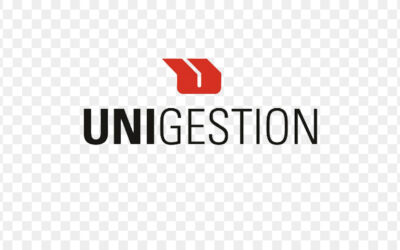This could be the best time for private equity firms to raise funds. Or it could be the worst.
There have been 497 funds raised globally this year through 15 June, down 27% from the same period last year, according to Preqin. The economic downturn caused by the coronavirus pandemic means raising money isn’t easy. But funds that do get off the ground right now could benefit in the long run if they’re able to deploy money on undervalued assets.
“What limited partners are trying to figure out right now is where they should put money moving forward,” said Antoine Dréan, founder of placement agent Triago. “Many LPs are taking a step back and also are taking more time to understand what they have already, before they put more money to work.”
Mark Nicolson, head of primary investments at Aberdeen Standard Investments, said that fundraising processes that were near completion prior to the crisis have been successful. But those that “were mid-process or kicking off will be difficult”.
Nicolson said even the biggest GPs are looking at an elongated fundraising process, as large pension funds in the US and investors in Asia are “hitting the pause button”.
Others in the industry also say that fund launches right now are running on longer timelines than usual. In April, Swedish buyout group EQT, which is raising a €15bn fund, said that the fundraising for its flagship strategy is expected to take longer due to the pandemic, for instance.
Mads Ryum Larsen, a managing partner and head of investor relations at IK Investment Partners, said the pandemic stretched out the timeline for the final closing of the firm’s €2.85bn fund – its largest to date – which it had started marketing in spring 2019. Just over €1bn of commitments came from new investors, though these relationships were established before lockdown, Larsen said.
He added that the pandemic lockdown had revealed virtual meetings can work for general updates for existing investors, but that “physical meetings will still be important for fundraising going forward”.
Fiona Balch, founder of FB Advisers, who just helped Swiss buyout group Evoco hold a €93m first close, agrees. She said that while due diligence calls over platforms such as Zoom will become more common, “given it’s such a long-term business and personalities play such an important role” there is only so much that can be done without being able to travel.
On the LP side, Aberdeen’s Nicolson said he is having fewer but longer conversations with GPs because of remote working. Despite the challenges, many funds appear to be pushing ahead.
Investec’s annual GP Trends survey of more than 400 private equity professionals published this month found that while a third expect to or have suspended raising their next fund the rest are continuing with their plans. According to data from Preqin, globally there are 3,709 funds on the road currently, looking to raise $878bn.
For investors with the appetite to invest in private equity funds, this could be an ideal time, according to Florin Vasvari, an expert in private equity and chair of the Accounting Faculty at London Business School.
“If we look at history and what happened after the previous crisis, we know that funds raised [then] did very well. If you follow that history, potentially funds that are raised this year will do well. They will operate in an environment that’s not as bubbly as last year. Valuations came down to earth and are more reasonable. So my guess is that it is a good time.”
Several studies support Vasvari’s view that funds that start investing at the height of crises have performed well. The two top-performing vintages following the global financial crisis were 2008 and 2009, according to research group eFront. The funds benefited from investing during the depths of the crisis, allowing general partners to take advantage of low prices and the subsequent economic recovery, the report’s authors said.
Many businesses, including private equity-owned companies, are struggling to survive because of the deepest economic downturn in decades. For deep-pocketed buyers with a long-term time horizon, there may be bargains among the rubble. Michel Galeazzi, partner and co-founder at Evoco, which is targeting a €150m final close for its third fund, said: “I think it is a great time, because times of dislocation or transformation are always good times to invest for private equity. That’s when the tools of a hands-on PE investor really bear fruit.”
He added that valuations in this crisis have come down much quicker than in past crises as well, which has created more attractive opportunities for buyers.
“Everyone came to a very realistic level more quickly, because the crisis was so severe, and included everybody.”
Cathay Capital closed its largest and first global private equity fund at $850m in May. Mark Woods, head of North American private equity at the firm, told PEN this is a very good time to have fresh capital.
“It allows us to fully take advantage of the market dislocations and invest in companies with strong fundamentals and growth prospects, but which might experience a temporarily weak balance sheet that we can help strengthen, or with companies looking to capitalise on growth opportunities that they would not be able to finance themselves,” he said.
Of course, not everyone agrees that the performance of private equity is worth betting on right now. A recent paper by Oxford University Saïd Business School professor Ludovic Phalippou found that the performance of private equity funds, net of fees, matched that of public markets since at least 2006. The paper also examined five of the largest pension schemes that publish net multiples of money data for all the funds they invested in between 2006 and 2015 and found that they earned about $1.50 per $1 invested – the same as what public equity has returned.
Nevertheless, one consequence of the current economic environment could be an increase in the appeal of larger funds. Just under a third of respondents to Investec’s survey expect to see the total number of fund managers operating in private equity to fall over the next decade.
“The distinction between asset gatherers and single strategy funds will continue in favour of asset gatherers,” Markus Golser, managing partner at Graphite Capital, said in the survey. “The sheer scale and leverage that they can get by dealing with investors across all of the asset classes will allow them to absorb the fee pressures well.”
Source: PE News
Can’t stop reading? Read more
Arthur Hayes’ family office targets $250m for debut crypto-focused private equity fund
Arthur Hayes’ family office targets $250m for debut crypto-focused private equity fund Maelstrom,...
Vista Equity prepares $1bn bond sale backed by private fund stakes with Goldman Sachs
Vista Equity prepares $1bn bond sale backed by private fund stakes with Goldman Sachs Vista Equity...
Unigestion sells Tecvia to Harris Computer, delivering 4.5x return and 80% IRR
Unigestion sells Tecvia to Harris Computer, delivering 4.5x return and 80% IRR Unigestion Private...




